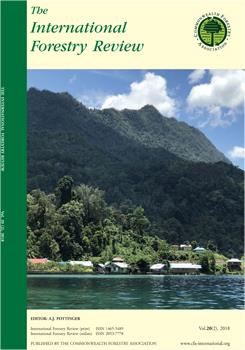Land reform in South Africa, like in other developing countries with a history of land grab and people's displacement, is an issue of serious contestation. The study therefore assessed the accrual of benefits to claimant communities from the two forest-based public-private partnership (PPP) land reform models (Sales and Leaseback, and Community Managed Enterprise). A random sampling technique was used to select 140 and 175 households in Amabomvini and Cata communities in Kwazulu Natal and Eastern Cape Provinces, respectively. Ordinal logistic regression, descriptive analysis, including frequencies and Chi-square were computed to process the data using Statistical Package for Social Sciences (SPSS) software (Version 20). From the results, the socioeconomic status of Cata household beneficiaries improved compared to that of Amabomvini after the implementation of forest-based PPP land reform models. Both communities were concerned about non-implementation of post-settlement support by the government upon settlement of their land claims. Tailor-made leadership and business management training should be designed for the CPA committee members and trustees in order to achieve mutual distribution of benefits to all beneficiaries
How to translate text using browser tools
1 June 2018
Are Communities Benefiting from Land Reform Models? Investigating Forest-Based Public-Private Partnerships in Selected Beneficiary Communities in South Africa
R.P. Tshidzumba,
P.W. Chirwa,
F.D. Babalola
ACCESS THE FULL ARTICLE

International Forestry Review
Vol. 20 • No. 2
June 2018
Vol. 20 • No. 2
June 2018
benefit accrual
benefit-sharing mechanisms
community beneficiaries
Community Managed Enterprise
sales and leaseback




